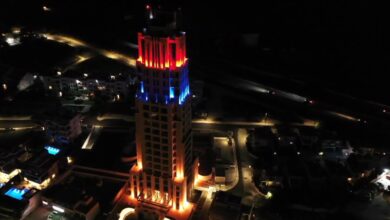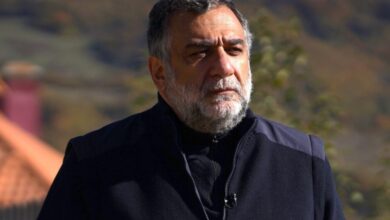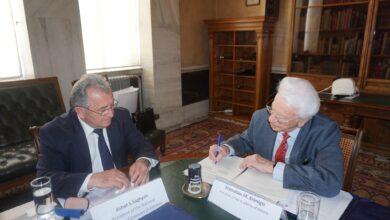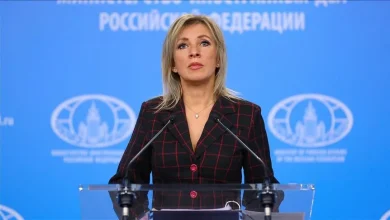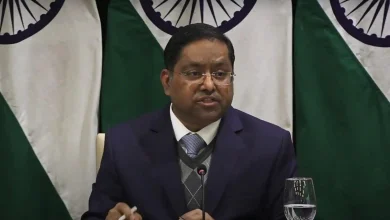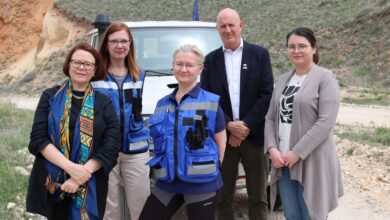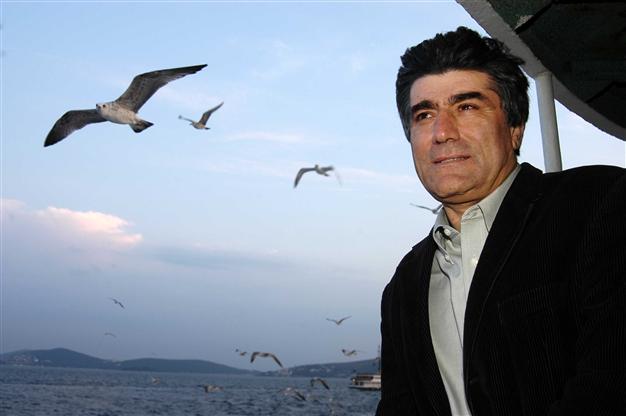
AFP – Ten years after campaigning Turkish-Armenian journalist Hrant Dink was shot dead in Istanbul, Armenians and Turks have still not achieved the reconciliation of which he dreamt.
The murder of Dink by a teenage gunman on January 19, 2007, near the offices of the Agos newspaper which he founded, sent shockwaves through Turkey. Thousands of Turks flooded onto the streets after Dink’s death declaring “We are all Armenians” in an unprecedented show of solidarity.
“Hrant made two great endeavours. To encourage dialogue between Turkey and Armenia. And to tell Turkish society about the Armenian issue in Turkey,” said Yetvart Danzikyan, who holds Dink’s former job of Agos editor-in-chief. But the dark ages of history cast a long shadow.
Born in the Anatolian city of Malatya – which once had a large Armenian population but now almost none – Dink moved to Istanbul and in 1996 sprung to prominence by founding Agos. Agos was not the first or only Armenian newspaper in Turkey but it was the first to be published in Turkish as well as Armenian, allowing a debate of issues that had long remained taboo.
“Hrant Dink gave the chance of telling Turkish society of the major problems of Armenians stemming from 1915,” said Agos’ Armenian language chief editor Pakrat Estukyan who knew Dink. “He made huge contribution and, unfortunately, paid for it with his life.”
Dink’s death became a symbol of the peril of such moves. The photograph of his corpse covered by a sheet, with just the soles of his shoes complete with a hole showing, underlined the tragedy. And although his assassin, just 17 at the time, was rapidly arrested and sentenced, the trial into the killing still grinds on with Dink’s supporters losing confidence on its ability to shed light on the plot.
In subsequent years, the ruling Justice and Development Party (AKP) of President Recep Tayyip Erdogan sought to build bridges with Armenia, a reconciliation process encouraged by the United States. But that process hit the buffers due to the simmering row over 1915, although analysts have long called for the historical dispute to be decoupled from more practical issues like border opening and trade.
The atmosphere became all the more poisonous during the 2015 100th anniversary, with Turkey cranking up the nationalist rhetoric in an election year and making clear it would never acknowledge genocide. “With his murder, he (Dink) also came to represent the peril of the process of normalisation,” Richard Giragosian, director of the Regional Studies Center (RSC) independent think tank in Yerevan, told AFP.
Underlining the acute sensitivity, an Armenian lawmaker for the Peoples’ Democratic Party (HDP), Garo Paylan, was suspended from the Turkish parliament last week for declaring in a debate the events of 1915 were “genocide”.
Dink’s assassin, Ogun Samast, is still behind bars but the trial into dozens of police accused of covering up the plot rumbles on.
The police on trial have been linked to Erdogan’s arch enemy, the US-based preacher Fethullah Gulen. Anger was caused by a video that emerged showing Samast bantering with police officers after his arrest and even holding up a Turkish flag.
“After 10 years, this court has still not shed light on the murder. We don’t have expectations from this process,” said Estukyan. Yet the taboos that Dink smashed remain broken. A few years before it would have been inconceivable to even have an Armenian in the Turkish parliament, let alone even utter the word “genocide”. Analysts hope that reconciliation is still possible.
“The man may be gone, but his mission continues and his spirit lives on, inspiring a new generation to look forward,” said Giragosian.


